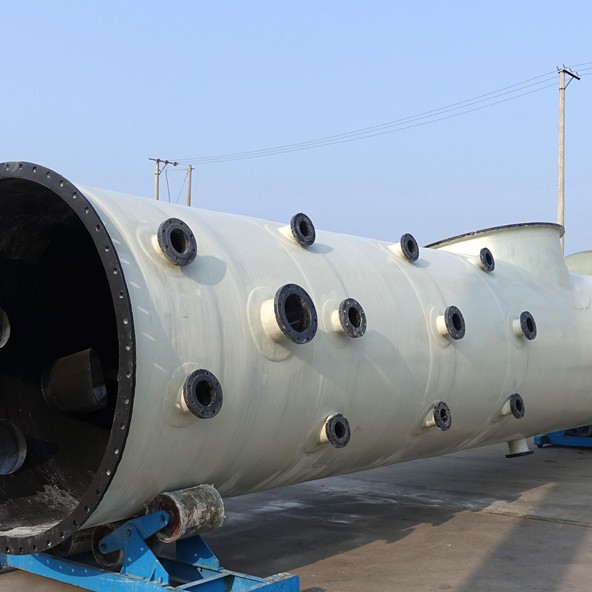
-
 Afrikaans
Afrikaans -
 Albanian
Albanian -
 Amharic
Amharic -
 Arabic
Arabic -
 Armenian
Armenian -
 Azerbaijani
Azerbaijani -
 Basque
Basque -
 Belarusian
Belarusian -
 Bengali
Bengali -
 Bosnian
Bosnian -
 Bulgarian
Bulgarian -
 Catalan
Catalan -
 Cebuano
Cebuano -
 China
China -
 China (Taiwan)
China (Taiwan) -
 Corsican
Corsican -
 Croatian
Croatian -
 Czech
Czech -
 Danish
Danish -
 Dutch
Dutch -
 English
English -
 Esperanto
Esperanto -
 Estonian
Estonian -
 Finnish
Finnish -
 French
French -
 Frisian
Frisian -
 Galician
Galician -
 Georgian
Georgian -
 German
German -
 Greek
Greek -
 Gujarati
Gujarati -
 Haitian Creole
Haitian Creole -
 hausa
hausa -
 hawaiian
hawaiian -
 Hebrew
Hebrew -
 Hindi
Hindi -
 Miao
Miao -
 Hungarian
Hungarian -
 Icelandic
Icelandic -
 igbo
igbo -
 Indonesian
Indonesian -
 irish
irish -
 Italian
Italian -
 Japanese
Japanese -
 Javanese
Javanese -
 Kannada
Kannada -
 kazakh
kazakh -
 Khmer
Khmer -
 Rwandese
Rwandese -
 Korean
Korean -
 Kurdish
Kurdish -
 Kyrgyz
Kyrgyz -
 Lao
Lao -
 Latin
Latin -
 Latvian
Latvian -
 Lithuanian
Lithuanian -
 Luxembourgish
Luxembourgish -
 Macedonian
Macedonian -
 Malgashi
Malgashi -
 Malay
Malay -
 Malayalam
Malayalam -
 Maltese
Maltese -
 Maori
Maori -
 Marathi
Marathi -
 Mongolian
Mongolian -
 Myanmar
Myanmar -
 Nepali
Nepali -
 Norwegian
Norwegian -
 Norwegian
Norwegian -
 Occitan
Occitan -
 Pashto
Pashto -
 Persian
Persian -
 Polish
Polish -
 Portuguese
Portuguese -
 Punjabi
Punjabi -
 Romanian
Romanian -
 Russian
Russian -
 Samoan
Samoan -
 Scottish Gaelic
Scottish Gaelic -
 Serbian
Serbian -
 Sesotho
Sesotho -
 Shona
Shona -
 Sindhi
Sindhi -
 Sinhala
Sinhala -
 Slovak
Slovak -
 Slovenian
Slovenian -
 Somali
Somali -
 Spanish
Spanish -
 Sundanese
Sundanese -
 Swahili
Swahili -
 Swedish
Swedish -
 Tagalog
Tagalog -
 Tajik
Tajik -
 Tamil
Tamil -
 Tatar
Tatar -
 Telugu
Telugu -
 Thai
Thai -
 Turkish
Turkish -
 Turkmen
Turkmen -
 Ukrainian
Ukrainian -
 Urdu
Urdu -
 Uighur
Uighur -
 Uzbek
Uzbek -
 Vietnamese
Vietnamese -
 Welsh
Welsh -
 Bantu
Bantu -
 Yiddish
Yiddish -
 Yoruba
Yoruba -
 Zulu
Zulu
Durable Insulated FRP Covers for Enhanced Thermal Protection and Performance
The Benefits of Insulated FRP Covers
Insulated Fiber Reinforced Plastic (FRP) covers are increasingly gaining traction across various industries, thanks to their remarkable durability, lightweight nature, and excellent insulation properties. These covers are primarily used in applications like piping, storage tanks, and equipment enclosures, where temperature regulation and protection from environmental factors are crucial. This article will delve into the benefits of insulated FRP covers, highlighting their advantages and applications across different sectors.
1. Excellent Insulation Properties
One of the primary reasons for using insulated FRP covers is their impressive insulation capabilities. The material is designed to minimize thermal bridging, which helps maintain the desired temperature of the contents within. With the growing emphasis on energy efficiency, industries that utilize insulated FRP covers can significantly reduce energy costs associated with heating and cooling processes. The insulating properties of FRP help keep systems operating at optimal temperatures, ensuring that energy is not wasted.
Insulated FRP covers are made from composite materials that are resistant to corrosion, chemicals, and harsh environmental conditions. This durability translates into a longer lifespan for the covers, reducing the need for frequent replacements and repairs. Industries that operate in challenging environments, such as marine, chemical processing, or wastewater treatment, benefit greatly from the robust nature of FRP materials. By investing in insulated FRP covers, companies can ensure operational continuity without the interruptions that come from damaged equipment.
3. Lightweight Yet Strong
Another noteworthy characteristic of insulated FRP covers is their lightweight nature, which makes them easier to handle and install compared to traditional materials such as metal. This reduced weight helps in a variety of ways, from lowering shipping costs to simplifying installation processes. Despite being lighter, insulated FRP covers do not compromise on strength, as they are engineered to withstand significant mechanical stress. This combination of lightness and strength makes them an attractive option for many industries.
insulated frp covers

4. Cost-Effectiveness
While the initial investment in insulated FRP covers might be higher than that of conventional insulation materials, the long-term savings often make them a more cost-effective solution. The reduced energy costs from their insulation capabilities, combined with their durability and reduced maintenance needs, contribute to substantial overall savings for companies. Additionally, the versatility of FRP covers allows them to be used in various applications, further justifying the initial cost with broad usability.
5. Environmental Benefits
As industries worldwide strive to become more sustainable, insulated FRP covers can play a significant role in reducing environmental impact. Their energy efficiency helps lower greenhouse gas emissions associated with power generation. Furthermore, being composed of recyclable materials, FRP covers can be decommissioned responsibly at the end of their life cycle, aligning with many companies' sustainability goals.
6. Versatile Applications
Insulated FRP covers are used in a wide range of applications, including HVAC systems, heat exchangers, storage tanks, and agricultural operations. Their adaptability to various shapes and sizes ensures that they can meet the specific needs of different systems and processes. As industries continue to evolve and seek solutions for temperature control and energy efficiency, the demand for insulated FRP covers is likely to grow.
In conclusion, insulated FRP covers represent a sophisticated solution for various industries seeking to enhance energy efficiency, durability, and sustainability. Their impressive insulation properties, combination of lightweight and strength, cost-effectiveness, and versatility underscore their increasing popularity in modern applications. As companies continue to prioritize efficiency and environmental responsibility, insulated FRP covers will undoubtedly play a pivotal role in shaping the future of industrial insulation solutions.
Latest news
-
Exploring the Benefits of Top Hammer Drifter Rods for Enhanced Drilling PerformanceNewsJun.10,2025
-
High-Precision Fiberglass Winding Machine for GRP/FRP Pipe Production – Reliable & Efficient SolutionsNewsJun.10,2025
-
FRP Pipes & Fittings for Shipbuilding - Corrosion-Resistant & LightweightNewsJun.09,2025
-
Premium FRP Flooring Solutions Durable & Slip-ResistantNewsJun.09,2025
-
Premium Fiberglass Rectangular Tanks Durable & Lightweight SolutionNewsJun.09,2025
-
Tapered Drill String Design Guide Durable Performance & UsesNewsJun.09,2025









